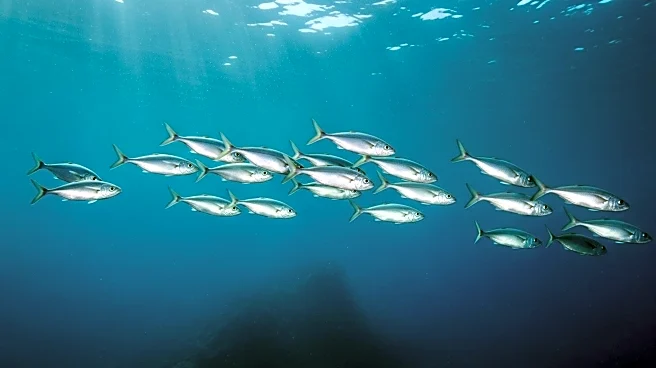What's Happening?
Scientists have issued a warning that mackerel fishing in the north-east Atlantic should be reduced by over 70% next year to prevent the collapse of fish stocks. The International Council for Exploration of the Sea (Ices) recommends a catch limit of 174,357 tonnes for 2026, significantly lower than the estimated 755,143 tonnes to be caught by the end of 2025. Overfishing has led to depleting mackerel stocks, posing long-term risks to the species and the fishing industry. Conservationists highlight the lack of enforcement and unified management plans between countries to prevent overfishing. The Marine Conservation Society (MCS) has downgraded mackerel in its sustainable fish guide, warning of immense pressure on the species.
Why It's Important?
The potential collapse of mackerel stocks in the north-east Atlantic has significant implications for the fishing industry and marine ecosystems. Mackerel is a crucial species for commercial fisheries, and its depletion could affect livelihoods and food security. The warning from scientists underscores the need for international cooperation and adherence to scientific advice to ensure sustainable fishing practices. The situation highlights broader challenges in managing shared marine resources and the importance of effective enforcement and management plans. The downgrade by the Marine Conservation Society reflects growing concerns about the sustainability of mackerel fishing and the need for urgent action to protect the species.
What's Next?
Governments and stakeholders in the fishing industry are urged to work together to agree on quotas in line with scientific evidence for the long-term sustainability of mackerel stocks. The Marine Stewardship Council (MSC) calls for urgent action to safeguard the future of mackerel and the communities that depend on it. Sustainable alternatives are available, but lasting change requires political will and cooperation among countries. The situation may prompt discussions on improving enforcement and management plans to prevent overfishing and ensure the sustainability of marine resources.










